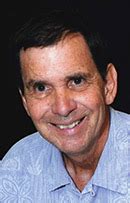A Quote by Daveed Diggs
I sort of have this feeling about change in general. We can make baby steps on a macro level. We can try to shift policy, voting and changing who's in office. But we can make huge, sweeping changes on a personal level and in your immediate circle, or just the people around you.
Related Quotes
People think that you have to do something huge, like go to Africa and build a school, but you can make a small change in a day. If you change Wednesday, then you change Thursday. Pretty soon it's a week, then a month, then a year. It's bite-size, as opposed to feeling like you have to turn your life inside out to make changes.
To make the quickest progress, you don't have to take huge leaps. You just have to take baby steps-and keep on taking them. In Japan, they call this approach kaizen, which literally translates as 'continual improvement.' Using kaizen, great and lasting success is achieved through small, consistent steps. It turns out that slow and steady is the best way to overcome your resistance to change.
Listen to what your higher wisdom has to say about how you can deepen your participation in the global shift-through personal healing, changing your worldview, or finding ways to help others and the environment. This is how you can both heal yourself and help humanity. At their deepest level, the two are joined and ready to awaken to a new world.
I'm particular about the projects that I've chosen. Each one of them, I've taken a step up, like climbing a ladder. Before, it was baby-steps, up to 'Riddick.' Then I took this huge leap onto 'Guardians!' It was such a higher level, this huge project which originally I never thought I'd have a chance in hell of getting.




































